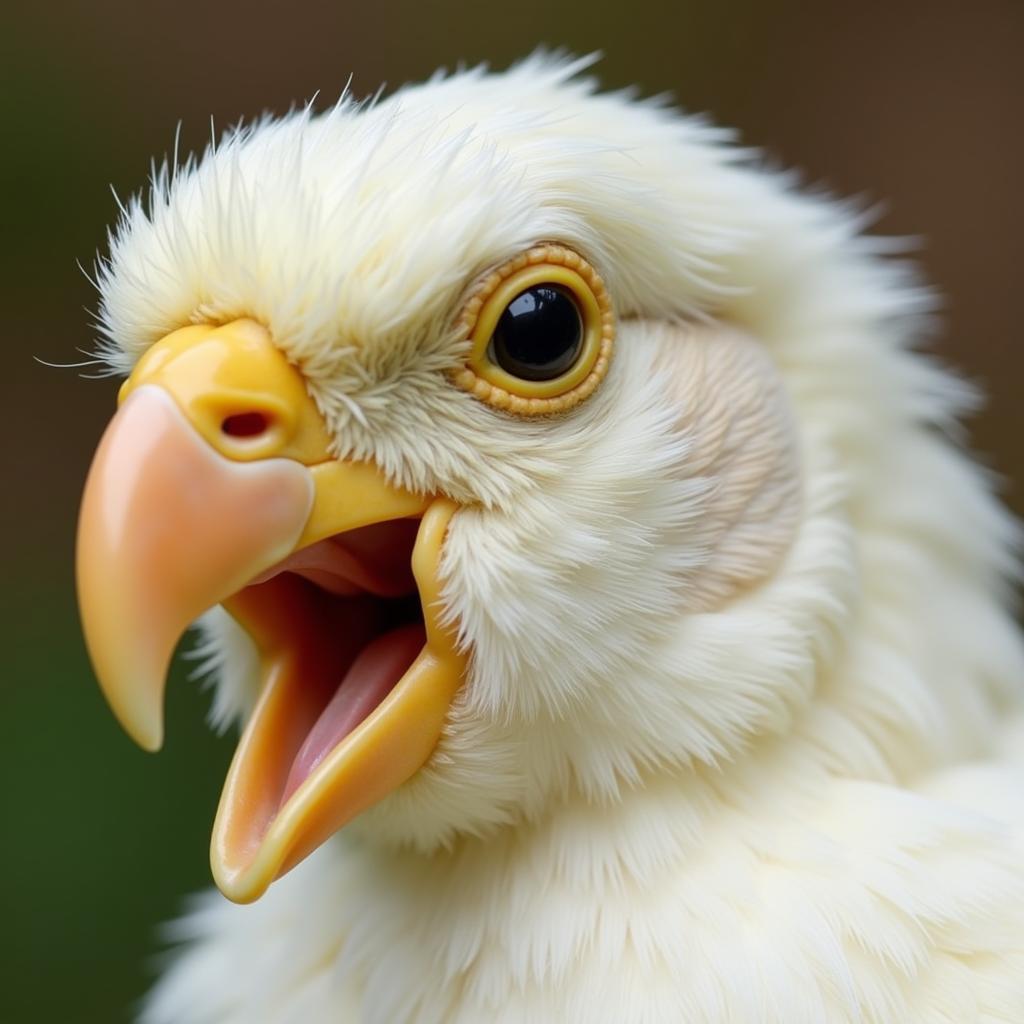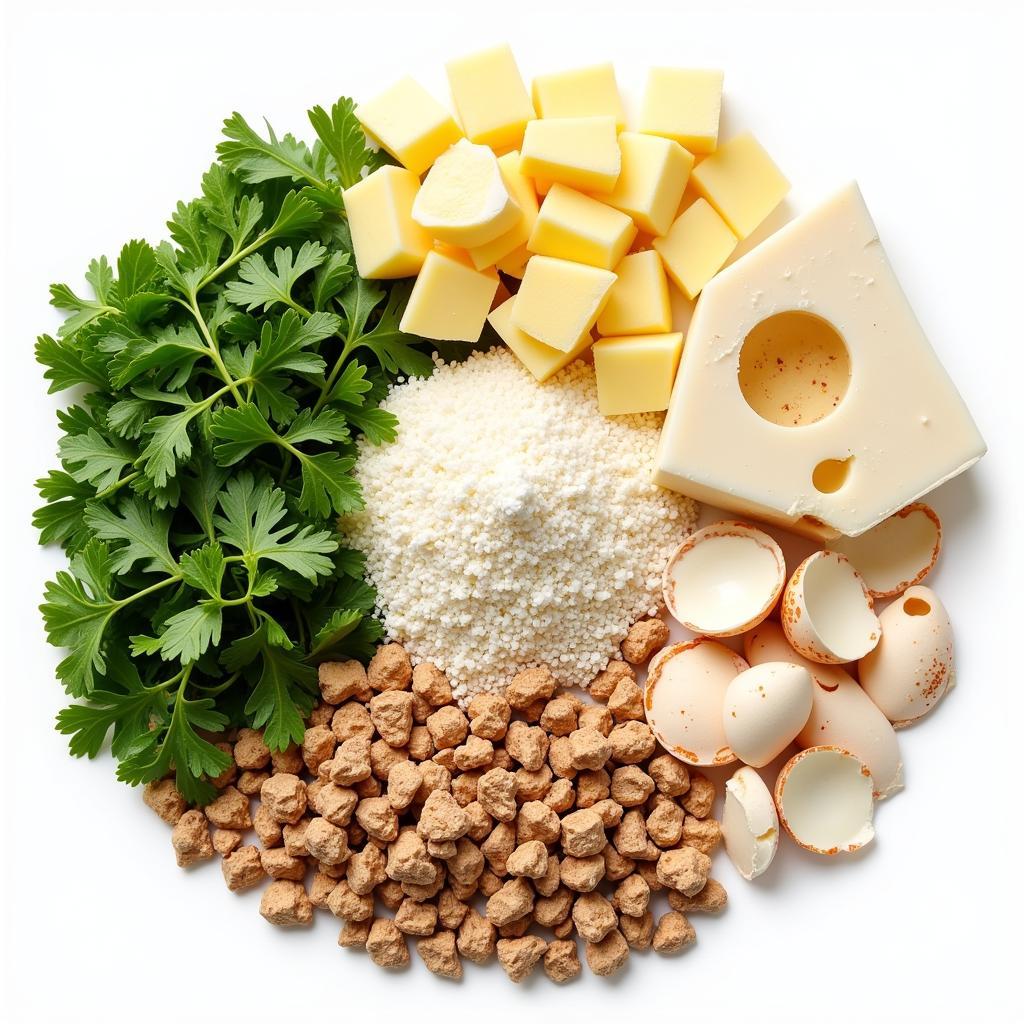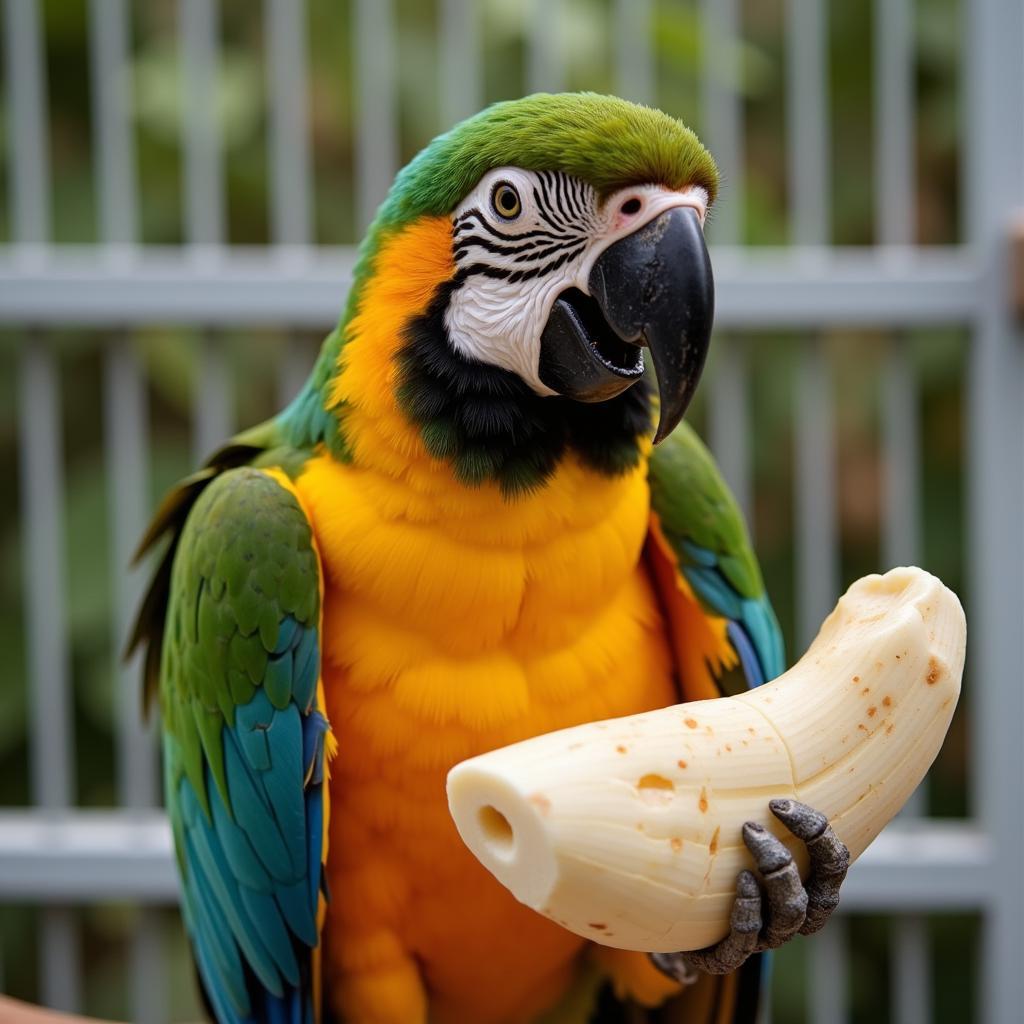Calcium is an essential nutrient for birds of all shapes and sizes, playing a vital role in maintaining their overall health and well-being. From strong bones and feather development to efficient muscle function and nerve transmission, calcium is crucial throughout a bird’s life, especially during periods of growth, breeding, and egg production. In Pakistan’s diverse avian population, providing adequate calcium is essential for ensuring your feathered friends lead healthy and fulfilling lives.
Why is Calcium so Important for Birds?
Just like in humans, calcium forms the building blocks of a bird’s skeletal system. It contributes to strong bones, which is particularly important for flight and overall mobility. Moreover, calcium is essential for healthy feather growth and maintenance, ensuring vibrant plumage and optimal insulation.
Beyond physical structure, calcium plays a critical role in various physiological processes. It facilitates efficient muscle contractions, including those required for flying, perching, and feeding. Additionally, calcium is vital for nerve impulse transmission, ensuring proper communication between the brain and the rest of the body.
 Calcium Deficiency in Birds
Calcium Deficiency in Birds
During the breeding season, female birds require significantly higher calcium levels for egg production. Calcium is a major component of eggshells, providing the necessary strength and protection for developing chicks. A deficiency in calcium can lead to thin-shelled eggs, egg binding (difficulty laying eggs), and other reproductive problems.
Signs of Calcium Deficiency in Birds
Recognizing the signs of calcium deficiency is crucial for timely intervention and prevention of further health complications. Some common indicators include:
- Weak bones: Birds may develop fractures or deformities in their bones, making movement difficult.
- Feather problems: Calcium deficiency can lead to poor feather growth, feather plucking, and dull plumage.
- Muscle weakness: Birds may exhibit tremors, weakness, and difficulty perching or flying.
- Seizures: In severe cases, calcium deficiency can cause seizures and other neurological problems.
- Egg-laying issues: Female birds may experience difficulty laying eggs, lay thin-shelled eggs, or exhibit egg binding.
 Calcium-Rich Foods for Birds
Calcium-Rich Foods for Birds
If you notice any of these signs in your bird, consult an avian veterinarian immediately. They can assess your bird’s condition, diagnose any deficiencies, and recommend appropriate treatment options.
Meeting Your Bird’s Calcium Needs
Providing a balanced diet rich in calcium is essential for maintaining your bird’s health. Here are some effective ways to ensure adequate calcium intake:
Dietary Sources of Calcium for Birds
- Commercial Bird Food: Choose high-quality commercial bird food specifically formulated for your bird’s species. These often contain added calcium to meet their dietary needs.
- Leafy Green Vegetables: Dark, leafy greens like kale, spinach, and dandelion greens are excellent sources of calcium. Offer them fresh or lightly steamed.
- Crushed Eggshells: Clean and bake eggshells thoroughly before crushing them into a fine powder. Sprinkle this powder over your bird’s food.
- Cuttlebone: Cuttlebone, the internal shell of a cuttlefish, is a natural source of calcium. Hang a piece of cuttlebone in your bird’s cage for them to peck at.
- Calcium Supplements: Your veterinarian may recommend calcium supplements, especially for birds with increased calcium demands, such as during breeding season or if they have a deficiency.
Tips for Providing Calcium to Birds
- Variety is Key: Offer a variety of calcium-rich foods to ensure your bird receives a balanced intake of nutrients.
- Freshness Matters: Provide fresh foods daily and discard any uneaten portions to prevent bacterial growth.
- Introduce New Foods Gradually: When introducing new foods, do so gradually to avoid digestive upset.
- Consult Your Veterinarian: For personalized dietary recommendations, consult with an avian veterinarian. They can advise you on the best calcium sources and amounts for your specific bird.
 Bird Enjoying a Calcium-Rich Treat
Bird Enjoying a Calcium-Rich Treat
Conclusion
Calcium is an indispensable nutrient for birds, playing a vital role in their physical development, physiological processes, and overall well-being. By understanding the importance of calcium and providing a balanced diet rich in calcium-rich foods, bird owners in Pakistan can help their feathered companions lead healthy, active, and fulfilling lives. Remember to consult an avian veterinarian for personalized dietary recommendations and to address any concerns about your bird’s health.